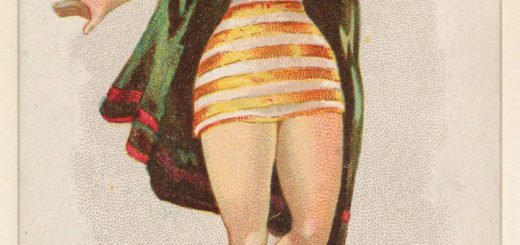Twist Technology for Inspiration by Catharine Bramkamp
 Let’s welcome back monthly columnist Catharine Bramkamp as she shares with us “Twist Technology for Inspiration.” Enjoy!
Let’s welcome back monthly columnist Catharine Bramkamp as she shares with us “Twist Technology for Inspiration.” Enjoy!
***
During “Shelter in Place,” or “Lock Down,” depending on how many dystopian novels you consume, it’s hard to get into the imaginative groove.
Really hard. We make plans, hold ideas, write down sincere goals only to have them all drown in a torrent of disappointment and frustration. Is it even possible to catch a boat, create, write?
If you want to move forward with your work, but are just swirling around unproductive eddies, try paddling in a different direction. Try a little twisted technology.
You may habitually dismiss technology as little more than the straight path to a science fiction tab for your novel.
You may dismiss the whole of technology as unimportant to a novel. But the glory and fun of writing is asking the question, what if?
And there is no more interesting “what if” than technology that veers off into an unintended direction creating unanticipated consequences.
Technology and Games
As in: Games — sucked into
The original story of Jumanji was based on getting sucked into a board game, the next logical iteration was to be sucked into a video game, with all the rules and systems in place, driving the story line.
Clearly, in 1972, being sucked into Pong or Asteroids or even Pacman wasn’t a very compelling theme. But as the technology advanced so did the artistic reaction and imagination.
All you need to do is write a few paragraphs about you, in your favorite game.
Technology of Utilities
Utilities — too much with us
We take electricity for granted, but it had a very trippy and disturbing path from wild idea, a la Ben Franklin, to brown outs a la PG&E.
One of the most popular experiments and demonstrations in the early 18th century was to show off how electrical currents could make a corpse twitch and move as if it were alive.
Mary Shelley paid to attend these demonstrations and very reasonably imagined the next best, horrifying step. (Frankenstein)
In film versions, lightning is the ultimate electrical animator but Shelley, cleverly, writes vaguely about the actual details of the science not mentioning electricity at all but that the good doctor “collected the instruments of life around me, that I might infuse a spark of being into the lifeless thing that lay at my feet.”
In most interpretations that spark was translated as electricity and electricity in it’s most cinematic form, is lightning. Taking us back full circle to Franklin capturing lightning in a bottle.
When you write about the next technology, it doesn’t matter — for this purpose — if you don’t know all the science, just write about the cause and effect.
Technology and Transpo
Trains, planes and automobiles – thinking for themselves
As men pushed trains over mountains, drove cars into pedestrians, fell off bicycles, crashed planes into skyscrapers, fiction writers didn’t need to hurt their brains imagining what could possibly go wrong.
As soon as a mode of transportation successfully moved us from here to there, we quickly imagined what if it went further, faster, deeper, higher?
From Jules Verne to a Delorian, the car, the submarine, the phone booth became a character in the story.
We may think that by the time Stephen King’s Christine was written, there isn’t much left to say about mechanical evils. But there always is. Does your partner argue with the GPS? There you go.
Communication – you never call
The invention of the telephone engendered long debates on exactly how to address an unseen person on the other side of that receiver. Winner? Hello.
From there the phone created a lovely literary trope, the missed call, the wrong number, stopping by a scary house to use the phone, a stranger calling from upstairs.
Our phones have both shrunk in size and expanded in utility to the point that in the film Her, we don’t require much suspension of disbelief to believe a man can fall in love with Siri.
There are countless plots predicated both on the unavailability of phone service, and the inability to leave our phones behind.
When you forgot your phone, how twitchy did you become?
We adapt fairly quickly to the addition of a new technology but what about when it’s ripped out of our hands?
The Trajectory of New Technology – The Big “What If”
Steampunk authors imagine worlds built from the workings of a mid-19th century computer coupled with cool steam based technology and modified Victorian fashion. It is not only a genre, it’s a movement.
- What if a technology worked better, sooner.
- What if one ascendant idea fell behind while another succeeded?
- What tech did you love that deserves a second chance?
We have sat through too many science fiction films where the technology, the workings of warp drive, or probability of time travel is lovingly detailed during a stupefying soliloquy. That is not what this is about.
Use all those powered up objects resting on every surface in your home and write a little bit more about them. Explore their story and their worth. Or stretch out the consequences, of use or disuse.
We are increasingly dependent on technology, especially when we can’t move around, or even row our little appropriately distanced boats to a neighbor’s home.
This may be a great time to take a look at our laptops and wonder, what else can possibly go wrong?
***
ABOUT THE AUTHOR
 Catharine Bramkamp is the co-producer of Newbie Writers Podcast that focuses on newer writers and their concerns. She is a successful writing coach, Chief Storytelling Officer, and author of a dozen books including the Real Estate Diva Mysteries series, and The Future Girls series. She holds two degrees in English and is an adjunct university professor. After fracturing her wrist, she has figured out there is very little she is able to do with one hand tied behind her back.
Catharine Bramkamp is the co-producer of Newbie Writers Podcast that focuses on newer writers and their concerns. She is a successful writing coach, Chief Storytelling Officer, and author of a dozen books including the Real Estate Diva Mysteries series, and The Future Girls series. She holds two degrees in English and is an adjunct university professor. After fracturing her wrist, she has figured out there is very little she is able to do with one hand tied behind her back.






